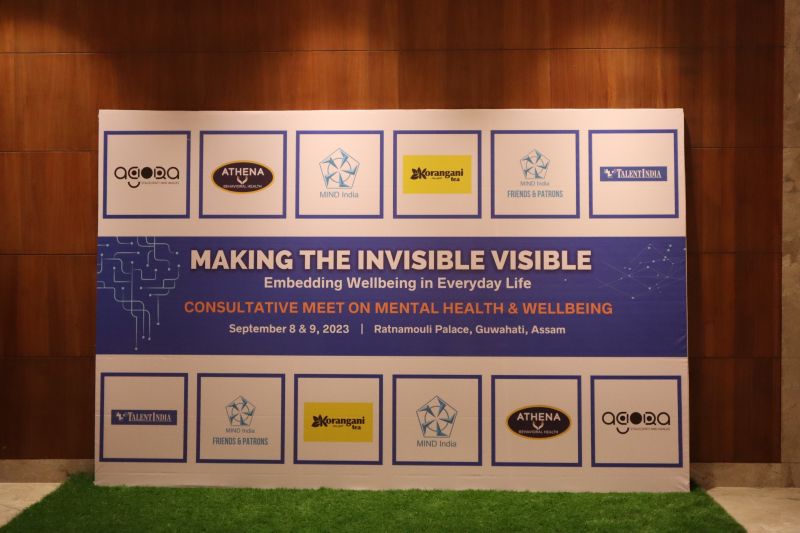Understanding Mental Health: Key Takeaways From Dr. Shradha Malik

Table of Contents
Recognizing the Signs and Symptoms of Mental Health Issues
Early identification is crucial in addressing mental health concerns. Many conditions share overlapping symptoms, making self-assessment challenging but vital. Recognizing the signs early can significantly impact treatment outcomes and improve mental wellbeing.
- Common signs and symptoms of various mental health conditions:
- Anxiety symptoms: Excessive worry, restlessness, difficulty concentrating, irritability, sleep disturbances, physical symptoms like rapid heartbeat or shortness of breath.
- Depression symptoms: Persistent sadness, loss of interest in activities, changes in appetite or sleep, fatigue, feelings of worthlessness or guilt, thoughts of self-harm or death.
- Stress management challenges: Feeling overwhelmed, difficulty coping with daily pressures, irritability, physical tension, difficulty sleeping.
It's important to differentiate between normal emotional fluctuations and diagnosable mental health conditions. Transient sadness is normal, but persistent, overwhelming sadness could indicate depression. Occasional anxiety is common, but chronic, debilitating anxiety requires professional attention. Self-assessment tools like the PHQ-9 (Patient Health Questionnaire-9) for depression and the GAD-7 (Generalized Anxiety Disorder 7-item) for anxiety can be helpful, but professional evaluation is essential for accurate diagnosis and treatment planning. These tools can provide a starting point for understanding your mental health signs.
The Impact of Lifestyle on Mental Wellbeing
Our lifestyle choices significantly influence our mental wellbeing. A healthy lifestyle isn't just about physical health; it's a cornerstone of mental wellness. Neglecting these aspects can negatively affect our psychological health and increase our vulnerability to mental health issues.
- Healthy lifestyle choices for improved mental health:
- Regular exercise and physical activity: Releases endorphins, reducing stress and improving mood.
- Balanced nutrition and diet: Provides the essential nutrients for brain function and emotional regulation.
- Sufficient sleep and rest: Allows the brain to repair and consolidate memories, improving cognitive function and emotional stability.
- Mindfulness and stress reduction techniques: Meditation, yoga, and deep breathing exercises help manage stress and promote relaxation.
- Social connections and support systems: Strong social bonds provide emotional support and reduce feelings of isolation.
By incorporating these elements into your daily routine, you can significantly enhance your mental health and build resilience against stress.
Seeking Professional Help and Available Resources
Seeking professional help is a sign of strength, not weakness. Many effective treatments are available, and overcoming mental health challenges is possible with the right support.
- Available resources for mental health support:
- Therapists and counselors: Provide therapy and support for a range of mental health conditions.
- Psychiatrists: Medical doctors specializing in mental health who can prescribe medication and provide therapy.
- Support groups and online communities: Offer a sense of community and shared experience for individuals facing similar challenges.
- Mental health helplines and crisis services: Provide immediate support during times of crisis. (Include specific local or international helplines here)
It's crucial to dispel the stigma surrounding mental health treatment. Just as we seek medical help for physical ailments, seeking help for mental health concerns is equally important. Various treatment modalities exist, including different types of therapy (cognitive behavioral therapy, dialectical behavior therapy, etc.) and medication, tailored to individual needs.
Building Resilience and Promoting Mental Wellness
Resilience is the ability to bounce back from adversity. It's a crucial skill for navigating life's inevitable challenges and maintaining mental wellness. Prioritizing mental wellness is an ongoing process that yields significant long-term benefits.
- Strategies to build resilience and promote mental wellness:
- Developing coping mechanisms: Learning healthy ways to manage stress and difficult emotions.
- Practicing self-care: Engaging in activities that nourish your mind, body, and spirit.
- Setting realistic goals: Avoiding overwhelm by breaking down large tasks into smaller, manageable steps.
- Building a strong support network: Surrounding yourself with supportive friends, family, and professionals.
- Positive self-talk and affirmations: Challenging negative thoughts and replacing them with positive self-belief.
Conclusion: Understanding Mental Health: Key Takeaways from Dr. Shradha Malik
Dr. Malik's insights highlight the importance of recognizing mental health issues early, adopting a healthy lifestyle, seeking professional help when needed, and building resilience. Prioritizing your mental wellbeing is an investment in your overall health and happiness. Take charge of your mental health today! Learn more about the resources mentioned above and start building a healthier, happier you. Share this article to raise mental health awareness and help others improve their mental wellbeing. Remember, improving mental health is a journey, not a destination, and seeking support is a sign of strength.

Featured Posts
-
 Unlocking Growth Saudi Arabias New Regulations For The Abs Market
May 03, 2025
Unlocking Growth Saudi Arabias New Regulations For The Abs Market
May 03, 2025 -
 Ps 6 Kl Ma Tryd Merfth En Blay Styshn 6 Aljdyd
May 03, 2025
Ps 6 Kl Ma Tryd Merfth En Blay Styshn 6 Aljdyd
May 03, 2025 -
 Gaza Freedom Flotilla Attacked Off Malta What We Know
May 03, 2025
Gaza Freedom Flotilla Attacked Off Malta What We Know
May 03, 2025 -
 Repetitive Scatological Documents An Ai Powered Podcast Solution
May 03, 2025
Repetitive Scatological Documents An Ai Powered Podcast Solution
May 03, 2025 -
 Indias Pm Modis France Trip Ai Focus And Ceo Engagement
May 03, 2025
Indias Pm Modis France Trip Ai Focus And Ceo Engagement
May 03, 2025
